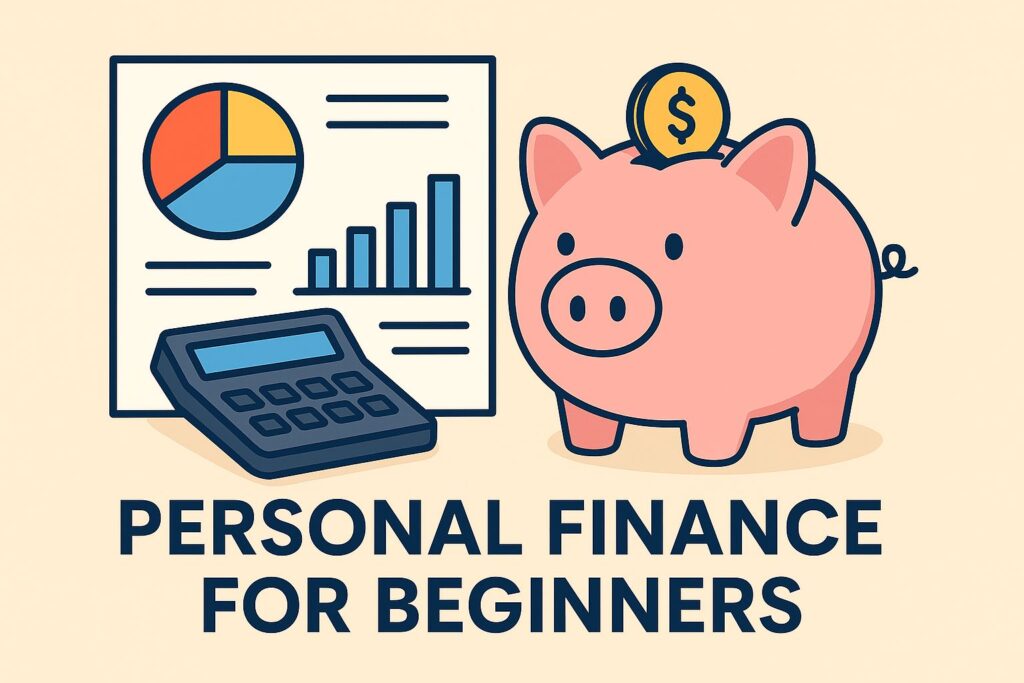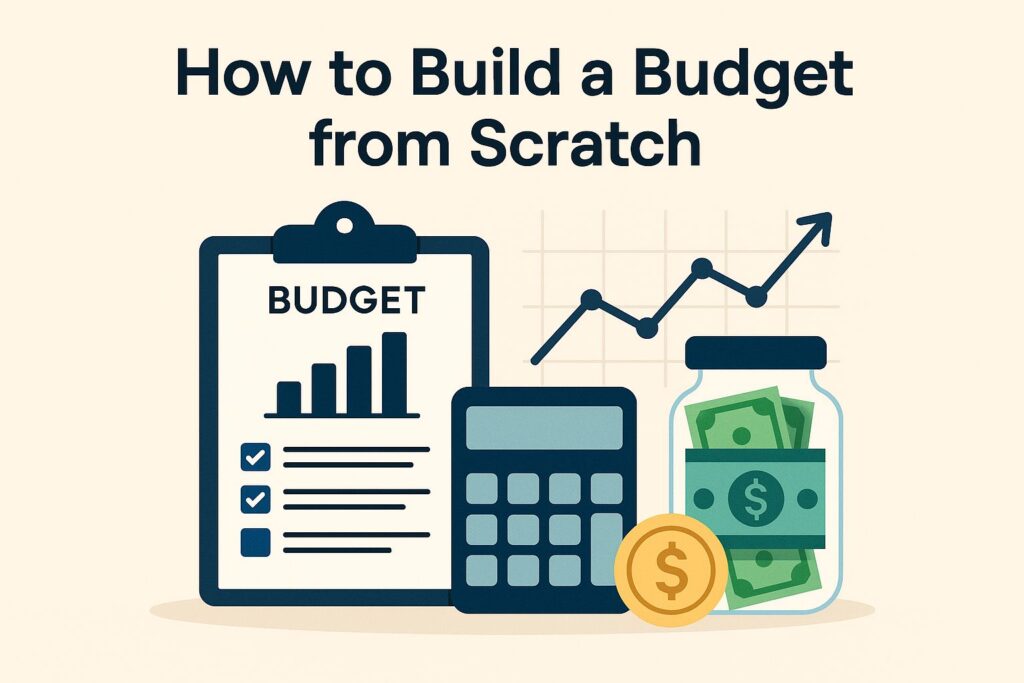Personal finance for beginners can seem overwhelming at first, but the truth is simple: manage your income, control your expenses, and build a secure future. If you’re just starting your financial journey, these 7 golden rules will help you begin with clarity and confidence.
- Understand Your Income and Expenses
Before you can improve your financial life, you need to understand where your money is going. Track all your income and every expense—no matter how small. Use a notebook, spreadsheet, or budgeting app. This awareness is the first step to gaining control over your personal finances.
Start by keeping a weekly log of everything you spend, from rent to snacks. Over time, you’ll spot trends you didn’t notice before. Are you spending too much on subscriptions? Eating out too often? Once you see the full picture, you can start making smarter choices.
- Review Your Spending Habits
Personal finance for beginners often starts with small behavior changes. Daily coffee runs, impulsive online shopping—these small expenses can add up quickly. Identify your spending triggers and cut back on things you don’t really need. Mindful spending is a financial superpower.
Try using the 24-hour rule: if you see something you want to buy, wait a day before purchasing. Most of the time, you’ll realize you don’t actually need it. This simple habit can save you hundreds of dollars over time.
- Create a Budget and Stick to It
Budgeting isn’t about restriction—it’s about freedom. Plan your monthly income and allocate it into categories: rent, utilities, food, savings, and fun. Sticking to a realistic budget helps you avoid unnecessary debt and reduces money-related stress.
There are many ways to budget: the 50/30/20 rule, zero-based budgeting, or envelope systems. Find the method that works best for you and adapt it to your lifestyle. The goal is not perfection, but consistency.
- Build an Emergency Fund
Unexpected events—like job loss, medical bills, or car repairs—can happen anytime. Start setting aside at least 10% of your monthly income for emergencies. Aim to build an emergency fund that covers 3–6 months of essential expenses. This is one of the best defenses in personal finance for beginners.
Even if you can only save $20 a week, that’s over $1,000 a year. Keep your emergency fund in a separate savings account so you’re not tempted to dip into it. Peace of mind is priceless.
- Handle Debt Wisely
Credit cards and loans can be useful—but only when used responsibly. Avoid taking on new debt unless absolutely necessary. Always try to pay more than the minimum balance and focus on clearing high-interest debts first. Responsible debt management is a crucial part of financial stability.
Consider using the snowball or avalanche method to tackle your debt step by step. The key is momentum—once you see one balance go down, you’ll feel motivated to keep going.
- Start Saving Early in Personal Finance for Beginners
In personal finance for beginners, consistency matters more than amount. Even small savings will grow over time, especially with compound interest. The earlier you start, the more you gain. Saving isn’t just a habit—it’s a mindset.
Set up automatic transfers to your savings account every payday. You won’t miss the money, and it will grow quietly in the background.
- Improve Your Financial Literacy
The more you know, the better decisions you’ll make. Read blogs, watch YouTube videos, take free online courses, and follow trusted finance experts. Understanding budgeting, saving, investing, and passive income gives you control and confidence.
Great places to start include Investopedia, Khan Academy, and personal finance YouTube channels. Make learning about money part of your routine—just 10 minutes a day can make a big difference over time.
💡 Bonus Rule: Set Clear Financial Goals
One of the most powerful steps in personal finance for beginners is setting goals. Whether it’s saving for a vacation, paying off a credit card, or building a retirement fund, writing down your goals gives you direction. Break big goals into small, achievable steps and celebrate each milestone.
Use visual aids like savings trackers or digital apps to stay motivated. When you know what you’re working toward, every dollar has purpose.


